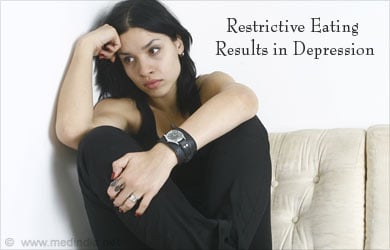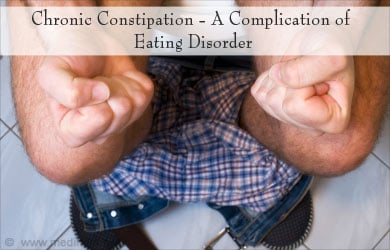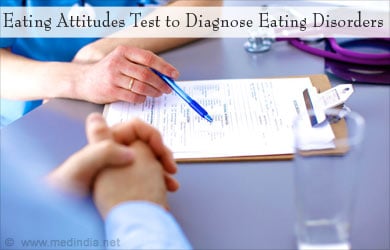- About Eating disorder - (https://en.wikipedia.org/wiki/eating_disorder)
- Eating Disorders - (http://www.nimh.nih.gov/health/topics/eating-disorders/index.shtml)
- WARNING SIGNS AND SYMPTOMS - (http://www.nationaleatingdisorders.org/types-symptoms-eating-disorders)
- Know More About Eating disorders - (http://www.nhs.uk/conditions/eating-disorders/pages/introduction.aspx)
- More Information on Eating disorders - (http://www.mayoclinic.org/diseases-conditions/eating-disorders/basics/prevention/con-20033575)
What are Eating Disorders?
Eating disorders are a type of mental illness characterized by abnormal eating habits often resulting in excessive weight loss or weight gain. It has the highest mortality rate compared to other mental disorders. The condition currently affects 70 million people around the world and is more prominent in the younger age group.
Eating disorders are the third most common chronic illness in females, and 15% of women experience it at least once in their lifetime. Eating disorders typically occur in the late childhood or during adolescence.

What are the Causes of Eating Disorders?
The causes of eating disorders are not yet identified, but several factors can contribute to its development. The most prominent causes of eating disorders include:
- Genetic: If a person’s ancestor had suffered from this disorder, then the person has a seven to twelve times risk of developing eating disorder. The genes that may cause eating disorder are currently researched extensively.
- Psychological: Some of the psychological factors that contribute to eating disorders include negative thoughts, feeling insecure, low self-esteem and body dissatisfaction.
- Social: Society plays a significant role in the development of eating disorders. Criticism of appearance, body shape and size, advertisements featuring skinny models, dieting habits, bullying, sexual abuse and perfectionism can all trigger eating disorders.
What are the Types of Eating Disorders?
The types of eating disorders can vary from person to person and are mainly classified as:
Anorexia Nervosa: Anorexia nervosa accounts for 90% of the eating disorders where the affected person starts to hate food due to fear of gaining weight. Both males and females can develop this disorder, but it is mainly diagnosed among females.
- Symptoms: Restrictive eating, excessive exercise, rapid weight loss resulting in emaciation, anxiety, depression, lack of menstruation in girls, sometimes with purging episodes.
- Complications: Anemia, osteoporosis, kidney failure.

Bulimia Nervosa: Bulimia nervosa is characterized by severe repetitive episodes of
Bulimia can go undetected for a longer time as patients experience fewer weight fluctuations. Data shows that 83% of bulimic patients vomit, 33% abuse laxatives and 10% take diet pills.
- Symptoms: Preoccupation with eating, secretive binge eating, low self-esteem, dieting, use of laxatives, and depression.
- Complications: Indigestion, heartburn, dental problems, rupture of the stomach from frequent vomiting, stomach and intestinal ulcers, constipation or diarrhea due to deliberate misuse of laxatives.
Binge Eating Disorder (BED): BED is characterized by eating lots of food frequently even when not hungry. It is similar to bulimia except that patients do not involve in purging episodes. The disorder often develops in late adolescence. The lifetime prevalence of BED is 2 percent in men and 3.5 percent in women, which is higher than that of anorexia nervosa and bulimia nervosa.

- Symptoms: Compulsive overeating, food addiction, loss of food control, feeling tired and bloated, splurging on food, suicidal thoughts, and sensitivity to body shape.
- Complications: High blood pressure, increased cholesterol levels, cardiovascular disease, stroke and diabetes.
Pica: Pica is characterized by an obsession with eating non-nutritive things such as chalk, paper, sand and metal. It is prominent among pregnant women and children with developmental disabilities.
- Symptoms: Eating objects like stones, dust, soil, wood and sharp objects for a prolonged period.
- Complications: Toxicity, surgical emergencies, trichobezoar (hairball), and parasitic infections.
Rumination Disorder: Regurgitation of a person's meals following ingestion is known as rumination syndrome, a rarely diagnosed eating disorder.
- Symptoms: Repetitive regurgitation of undigested food
- Complications: Weight loss, vitamin deficiencies, and dental problems
Selective Eating Disorder (SED): SED is also known as Avoidant / Restrictive Eating Disorder and is characterized by limiting intake of certain foods. Children with autism and obsessive-compulsive disorder are at higher risk of developing this disorder.
- Symptoms: Being choosy on foods, avoiding foods, particular behavior patterns and difficulty of adjusting to new foods.
- Complications: Poor nutrition, vitamin and mineral deficiency, inability to adjust to a new diet.
Other Specified Feeding and Eating Disorders (OSFED): These are more likely to be related to anorexia, bulimia and binge eating, but do not meet the full criteria for the diagnosis of these disorders. OSFED typically affects both males and females and the onset is 18–20 years of age.
- Symptoms: Weight fluctuations, feeling sick often, dizziness, dehydration, anxiety, depression, suicidal thoughts, changes in food preferences, cooking a lot, and obsessive eating.
- Complications: Menstrual cycle disturbances, loss of fertility, diarrhea, chronic constipation and heart failure.

What are the Risk Factors for Eating Disorders?
The following circumstances can increase the risk of developing eating disorders:
- Age: Children can develop eating disorders, but young adults in the age group of 12-26 years are more prone.
- Gender: Though eating disorders affect men and women, the incidence of eating disorders is much higher among teenage girls.
- Familial History: Eating disorders are significantly more likely to occur in people whose parents or siblings suffered from an eating disorder.
- Mental Illness: People who suffer from anxiety, depression or cognitive decline have an increased risk of developing eating disorders.
- Sports and Cultural Activities: People who engage themselves in sports or modeling restrict their calorie intake to remain fit. Too much obsessive behaviour can trigger the onset of eating disorder among them.
How to Diagnose Eating Disorders?
It is tough to diagnose eating disorders as people don’t show specific symptoms. Only after analyzing the symptoms experienced for a particular period, the possibility of an eating disorder can be detected.
The standard diagnostic methods used by doctors include:
Medical History: Doctors examine the medical history of a patient by asking about the symptoms and dietary habits and also about their parents’ medical history. They may also check for weight loss or gain, depressive symptoms, negative thoughts and body dissatisfaction.
Psychological Assessment: After ruling out genetic influences or hereditary causes, doctors may perform certain tests or ask to fill a questionnaire to screen for or diagnose eating disorders. There are different types of tests namely:
- Eating Attitudes Test (EAT-26): It is a screening tool that has a set of 26 questions portraying the symptoms of eating disorders. The test is interpreted based on three criteria: the total score obtained in the test, BMI, and behavioral tendencies of the respondent. A score of 20 or more suggests a high risk for an eating disorder.

- Body Attitude Test (BAT): This test is typically based on body dissatisfaction symptoms and helps to diagnose eating disorders among women.
- Eating Disorder Inventory (EDI): EDI is a diagnostic tool designed to assess the presence of an eating disorder. The latest revision of the tool has 91 items divided into twelve subscales rated on a 0-4 point scoring system. Three subscales are specific to eating disorders and 9 are general psychological scales that are relevant to eating disorders.
- SCOFF Questionnaire: SCOFF is an acronym that stands for ‘S’ – Sick (vomiting), ‘C’- Control (loss of control over eating), ‘O’- One stone (loss of one stone or 14 lbs./6.5 kg. in the last 3 months), ‘F’- Fat (consider oneself fat in spite of being thin), ‘F’-Food (fascination for food). For each point, a score of one is given. If the score exceeds 2 points, there may be chances of anorexia or bulimia.
- Body Attitudes Questionnaire (BAQ): BAQ includes 44 questions divided into six subscales that assess overall fat, self-disparagement, strength, the salience of weight, feelings of attractiveness, and consciousness of lower body fat.
- Eating Disorder Examination Interview (EDE): EDE has questions related to restraint, eating, weight and shape concerns. It assesses the frequency at which the patient engages in behaviors that could indicate the presence of an eating disorder over the last 28 days.
How to Treat Eating Disorders?
Treatment for eating disorders is based on the type and symptoms experienced by an individual. Treatment for each disorder is unique, but one or more treatment options can be offered to a single patient.
Eating disorders treatment will also involve addressing other mental illness or health problems additionally. Treatments of eating disorders include the following:
Nutritional Counseling: If an individual is experiencing any problems with eating or restricting food, a dietitian or nutritionist can be approached first to get appropriate counseling. The dietitian may analyze the individual's symptoms and advise on healthy eating practices.

Psychotherapy: People with eating disorders are likely to be emotional, sensitive and vulnerable. Psychotherapy is a method practiced by a psychologist to treat mental illness by talking. The psychologist will form a trustworthy bonding with the patient and will address issues related to food, negative thoughts, body image problems and low self- esteem.
Cognitive Behavioural Therapy (CBT): CBT is an excellent method of treatment for eating disorders. It deals with the thoughts and behavioral patterns of an individual and helps overcome the disordered eating problems. A psychiatrist or psychologist can be approached for this therapy.
Family-Based Therapy (FBT): For any mental disorder, support of family and friends is crucial to overcoming it. A family-based therapy will help individuals to feel secure about their family members and disclose their emotional feelings pertaining to their eating disorder. The psychologist may address other issues in the family as well such as the conflict between members, communication problems, or physical or sexual abuse, which may assist in the recovery of the patient.
Medications:
There are no precise medications for eating disorders, but drugs that can reduce the additional mental problems can be prescribed. These drugs should only be used in conjunction with another treatment approach.
Antidepressant medications such as selective serotonin reuptake inhibitors (SSRI) and tricyclic antidepressants can reduce binge eating disorder. Fluoxetine is the only antidepressant approved by the U.S. Food and Drug Administration (USFDA) to treat bulimia.
Anticonvulsant medications such as topiramate and zonisamide may suppress appetite and prevent binge eating. Last year, the USFDA approved a drug ‘lisdexamfetamine’ for the treatment of binge eating.
Self-Help for Eating Disorders
The road to eating disorder recovery significantly lies in self-help or admitting your problem and taking efforts to overcome it. At first, it may be embarrassing to talk about overeating or purging, but once you start rediscovering yourself beyond body image and weight, you will feel good about life.
Eating disorders recovery is simple with these little steps:
- Seek help
- Go for therapies
- Stick to a routine diet
- Have a positive environment
- Feel confident about your body
- Challenge critics
- Follow a long-term treatment plan






